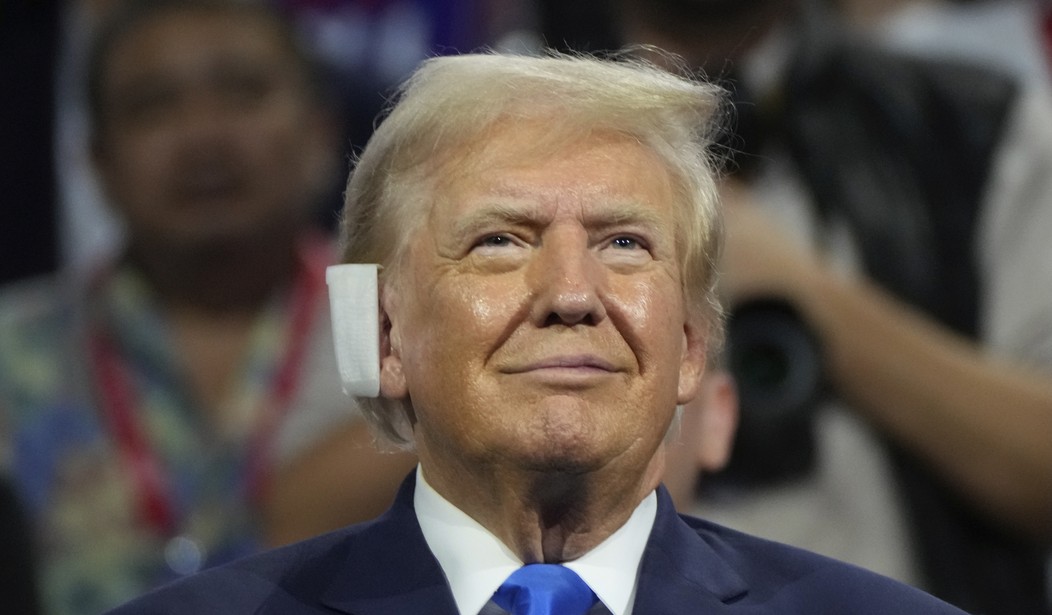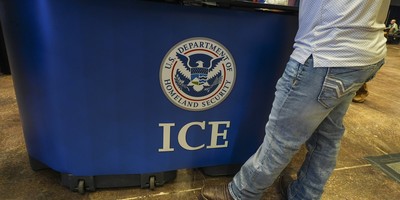When Donald Trump takes the stage Thursday night and accepts for the third time the Republican Party's nomination for president, he faces an opportunity and a temptation.
The temptation is to launch a full-bore attack on Democrats, President Biden, the left and the media. The opportunity is to use the sympathy he has garnered since last Saturday's assassination attempt to pursue a loftier goal. He should choose the opportunity.
After Ronald Reagan was shot by John Hinkley in 1981, the president told his wife, Nancy, at the hospital, "Honey, I forgot to duck." That leaked comment immediately endeared him to many Americans, including, I suspect, some who had not voted for him.
Reagan's display of humility and his refusal to condemn Hinkley astounded many, though it was consistent with his character. Two weeks after being shot, he returned to the White House and wrote in his diary: "Whatever happens now I owe my life to God and will try to serve him in every way I can."
In Washington if you can fake humility you can fake anything, but this is where Trump has a chance to demonstrate a thought Calvin Coolidge once expressed: " It is a great advantage to a President, and a major source of safety to the country, for him to know that he is not a great man."
Americans have always appreciated stories about changed lives. "I once was blind, but now I see" is a lyric from "Amazing Grace," a hymn popular even among the secular. A preview of what might be coming Thursday was the expression on Trump's face and his demeanor as he made an appearance Monday night inside the convention hall in Milwaukee. As the crowd roared, he seemed to be applauding them and repeatedly murmured "thank you." The gauze bandage on his right ear covering where he had been shot added further weight to the moment.
Recommended
Trump should begin his speech by thanking those who contributed to saving his life. What message does he take from being spared? He should tell us. What has the experience taught him about the brevity of life and his own mortality? He should minimize, or eliminate, any attacks on President Biden and talk optimistically about the future and what he plans to do if given another opportunity. He shouldn't appear to be faking it, so lowering the tone of his voice and speaking as if directly to one person (with his TV experience he knows how to do that) would go a long way toward changing the political temperature, at least temporarily.
Someone might share with him this profound thought: "A soft answer turns away wrath, but a harsh word stirs up anger. The tongue of the wise uses knowledge rightly, but the mouth of fools pours forth foolishness." (Proverbs 15:1-2)
Trump has had his say about what he thinks of the president, Nancy Pelosi and even some fellow Republicans. He should pledge in his speech that he intends to focus less on personalities and more on what he regards as the failed policies of the present administration, how he plans to reverse them, and how that reversal will benefit the most people.
Optimism about the future is what people want to hear. They know and can feel the problems, especially economic ones. To that end I offer this useful quote: " All of us share this world for but a brief moment in time. The question is whether we spend that time focused on what pushes us apart, or whether we commit ourselves to an effort -- a sustained effort -- to find common ground, to focus on the future we seek for our children, and to respect the dignity of all human beings."
I'd love to see the reaction from the delegates and the media if Trump dared to use that quote from President Barack Obama in his acceptance speech.
























Join the conversation as a VIP Member